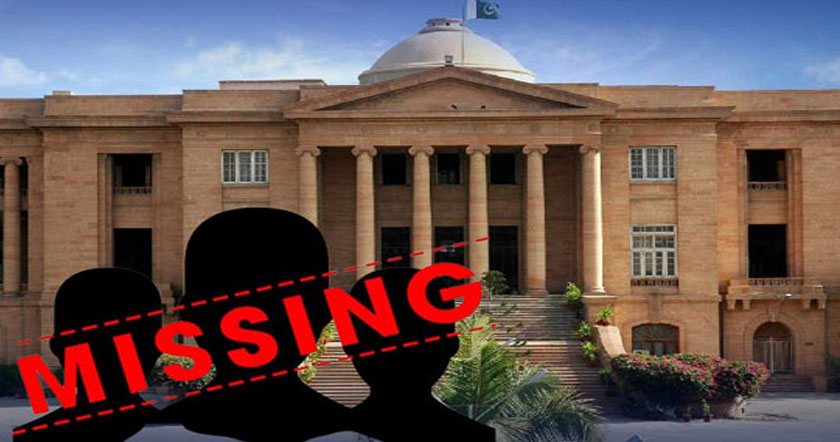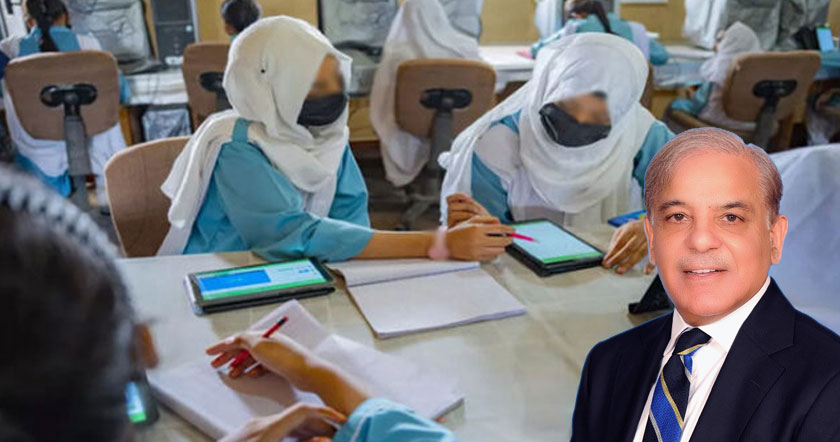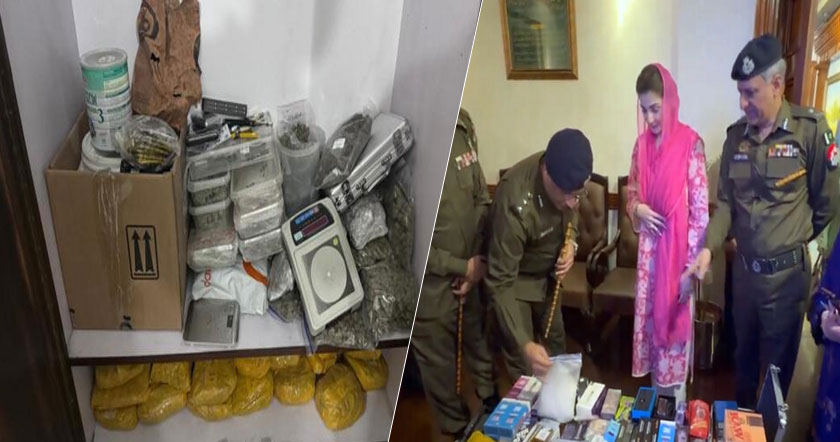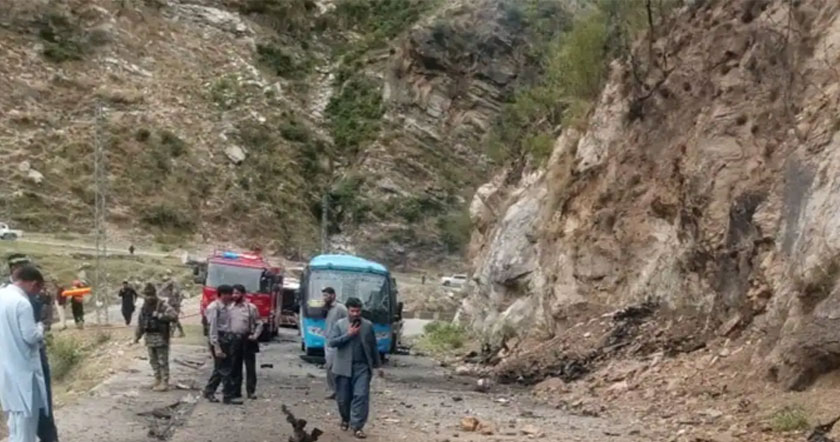Alert: About 100 Uyghur refugees (18 families) living in Rawalpindi risk deportation to China after Eid-ul-Fitr. They were given a six-month reprieve in Oct/Nov 2023 which expires soon. Upon deportation to China, these refugees face imminent danger of detention and torture in concentration camps, if not summary executions!!
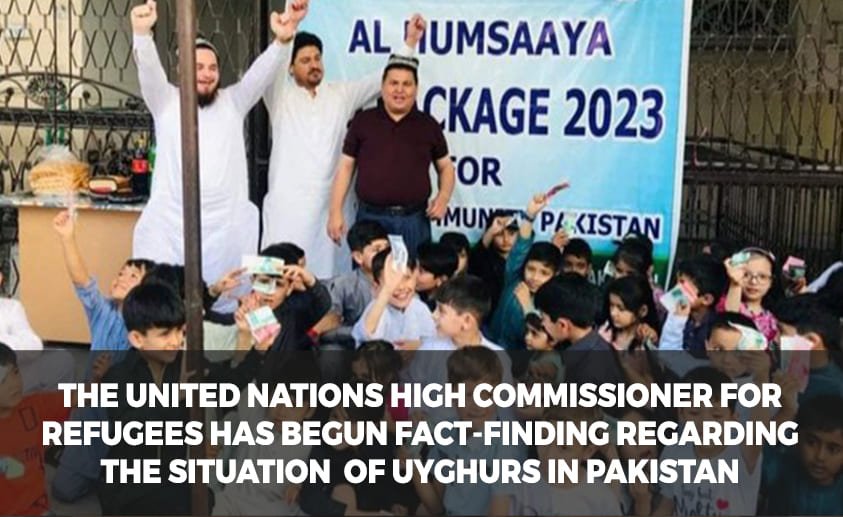
Eighteen Uyghur families are living in Rawalpindi, Pakistan, comprising approximately 100 Uyghur individuals, facing the risk of deportation by Pakistani authorities because they lack legal identity, passports, or residence permits. With the sudden announcement by the Pakistani government of "cleansing illegal immigrants," these Uyghurs in Rawalpindi cannot live peacefully and await their fate of deportation once again.
It's worth noting that most of them fled from Afghanistan to Pakistan with their fathers during the Afghan-Soviet War, around 30 to 40 years ago. At that time, these Uyghurs were registered as "Afghan refugees" in the Pakistani government offices. However, according to Pakistani immigration law and the provisions against illegal immigrants, these Uyghurs who arrived from Afghanistan couldn't obtain any passports or residence permits in Pakistan.
Apart from living in Pakistan as "illegal immigrants," they didn't have legal nationality even in Afghanistan, the country they fled from. They don't possess any documents proving their Afghan citizenship. Therefore, since they lack legal documents to confirm their citizenship in any country, they simply refer to themselves as "We are Uyghurs."
If the Pakistani authorities were to deport them as Afghans to Afghanistan, currently controlled by the Taliban, they may be in even greater danger.
We understand that these Uyghurs in Rawalpindi are extremely concerned about the possibility of being returned not only to Afghanistan but even to China. Despite having no connection to China, officials from the Chinese embassy visited these Uyghurs in Pakistan 10 years ago. They claimed that the Chinese government had reached out to these Uyghurs through the Chinese Expatriate Association in Rawalpindi in previous years, promising them financial assistance and facilitating their children's education, and they took a list of their names.
For this reason, these Uyghurs awaiting their fate at the Pakistani border ask, "If China asks, will Pakistan send us back to China?" They are in an extremely distressing situation.
These Uyghurs in Rawalpindi informed us in our recent interview that Pakistan is no longer a safe haven for them, and they want to move to a third safe country. They have also submitted a request to the United Nations High Commissioner for Refugees (UNHCR) to extend their stay in Pakistan.
Mr. Omar, the head of the Omar Uyghur Foundation in Pakistan, who has been assisting Uyghurs in Pakistan, told us three weeks ago that Uyghurs have been seeking help from the United Nations refugee agency for several years, but to no avail.
On October 23, when Mr. Omar had our phone interview, he mentioned that after reporting the situation of the Uyghurs in Rawalpindi to Radio Free Asia, the United Nations High Commissioner for Refugees contacted him twice and inquired about the Uyghur situation in Rawalpindi.
Mr. Omar confirmed that, although Pakistani authorities have not pursued these Uyghurs, Pakistani property owners who rent them houses are pressuring them to vacate the premises by November 1.
We asked the Uyghur representative in Rawalpindi, Mr. Abdul Ahad, about the situation they are facing.
Mr. Abdul Ahad stated that ten days ago, and today, October 23, employees of the United Nations Refugee Agency in Pakistan asked him and several other Uyghurs about their situation. They inquired if they had been threatened by Pakistani authorities or the police and asked questions like, "What difficulties are you facing?" He mentioned that they asked about the Uyghurs in Rawalpindi, their names, addresses, and family situations.
According to Abdul Ahad, as the deadline for the deportation of illegal immigrants approaches, Uyghurs in Rawalpindi are hiding in their homes and not sending their children to school. Furthermore, the property owners who rent out the houses they live in continue to pressure them to vacate their homes.
We contacted the office of the United Nations High Commissioner for Refugees in Pakistan and informed them about the measures they are trying to take in response to the Uyghur emergency situation in Pakistan. However, they did not respond to our inquiries.
We reached out to the "Justice for All" organization, one of the Islamic organizations concerned about the Uyghur situation in the United States, regarding the emergency situation of 18 Uyghur families living in difficult conditions in Pakistan. Abdul Malik Mujahid, the organization's president, granted us an interview and said, "Pakistan has been a refuge for Afghan refugees. For many years, Pakistan, which welcomed Muslim refugees from Afghanistan, the Rohingya, and India, has also hosted the Uyghurs. For example, one of my neighbors in Pakistan was Uyghur. Despite Pakistan's feeling that it is necessary to take such action against illegal immigrants due to its war against terrorism and economic issues, attempting to deport Muslim refugees is considered a wrong step. Unfortunately, refugee deportation for political reasons happens in Germany as well as in the United States. It is entirely true that Pakistan wants to prevent terrorist activities on its soil, but it should welcome and accommodate Uyghur refugees because they are the refugees who came to Pakistan fleeing state-sponsored persecution."
To the best of our knowledge, Uyghur organizations like the World Uyghur Congress are currently seeking ways to address the urgent issue of Uyghurs in Pakistan. Ms. Louisa Greve, a worker at the Uyghur Human Rights Project in Washington, stated to our radio station that the situation of Uyghurs in Pakistan is highly concerning.
Human Rights Watch is deeply concerned about the repatriation of any Uyghurs to China. No government should send Uyghur refugees back to China at this time. According to international law, no one should be forcibly returned to a country where they may face physical punishment, unlawful detention, or other serious human rights violations. Otherwise, it would be a violation of international law.
Source: UNHCR begins act-finding regarding the situation of Uyghurs in Pakistan
UNHCR, the UN Refugee Agency, is raising concerns over Pakistan’s announcement for undocumented foreigners to leave, as the orders have adversely affected Afghan nationals including registered refugees and others with valid documents.
Source: UNHCR concerned at adverse effects of Pakistan orders for undocumented foreigners to leave
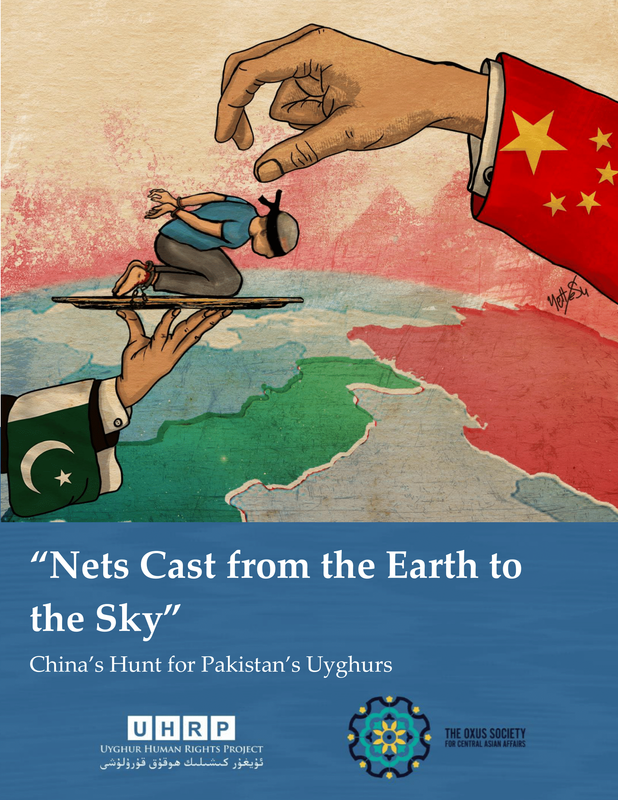
“Nets Cast from the Earth to the Sky” explores how China has targeted Uyghurs in Pakistan and Afghanistan since the late 1990s in order to silence dissent. The report distinguishes different methods by which the Chinese government represses Uyghur communities in Pakistan and Afghanistan and determines how these methods violate international human rights and legal norms. The report also chronicles China’s engagement with its fiercest ally, Pakistan, over the past 40 years in order to demonstrate how increased engagement between the two countries correlates with a growing humanitarian crisis for Uyghurs living in the region. To this end, we gathered cases of China’s transnational repression of Uyghurs in Pakistan and Afghanistan from interviews with Uyghur activists and refugees in Pakistan, Afghanistan, and Turkey, in addition to government documents and human rights reports, and Urdu and English media.
Our work draws from the China’s Transnational Repression of Uyghurs Dataset, a joint project by the Oxus Society for Central Asian Affairs and the Uyghur Human Rights Project (UHRP).1 From our dataset, we have identified and analyzed 21 cases of detention and deportation in Afghanistan and Pakistan, with an upper estimate of 90 reported incidents lacking full biographical records.
The PRC is able to target Uyghurs outside its borders with the help of the neighboring host governments. For example, in Pakistan China entices the government with large development projects like the China-Pakistan Economic Corridor (CPEC) in order to secure its support against Uyghurs. This report demonstrates several instances in which China rewarded Pakistan for aiding its campaign against Uyghurs. In exchange for development assistance, Pakistan signed extradition treaties, arrested individuals at China’s request, and rebuked critics of China’s harsh policies, all of which made it easier for China to continue repressing Uyghurs.
The report also illustrates how China utilizes international organizations to shape perception of Uyghurs globally. China aims to frame its campaign against Uyghurs as “counterterrorism” and uses international mechanisms and organizations to legitimize its actions, particularly in the Muslim world. These tactics also deepen security ties with countries hosting Uyghurs, allowing China to more easily target Uyghurs outside its borders.
Through its strategy of offering extravagant development projects while deepening security ties, China has successfully gained influence over Pakistan’s government and thus its Uyghur community. China is now attempting to implement this strategy in other countries with sizable Uyghur populations. As the Taliban gains territory in Afghanistan, Pakistan is portraying itself and China as facilitators of peace and development. China will use the chaos in Afghanistan to further justify its crackdown on Uyghurs, who express fear about their future in the country.
Source: China’s Hunt for Pakistan’s Uyghurs
Five Uyghurs have been sent back to China, where they face punishment.
Pakistani authorities have deported five ethnic Uyghurs to China's northwestern Xinjiang Uyghur Autonomous Region where they may face persecution on their return, according to the head of a Uyghur exile group.
"According to the information we received, all five were Uyghurs," said Omer Khan, the founder of the Omer Uyghur Foundation in the Pakistani capital of Islamabad.
Source: Pakistan deports Uyghurs
The United Nations High Commissioner for Refugees has begun fact-finding regarding the situation of Uyghurs in Pakistan.

Eighteen Uyghur families are living in Rawalpindi, Pakistan, comprising approximately 100 Uyghur individuals, facing the risk of deportation by Pakistani authorities because they lack legal identity, passports, or residence permits. With the sudden announcement by the Pakistani government of "cleansing illegal immigrants," these Uyghurs in Rawalpindi cannot live peacefully and await their fate of deportation once again.
It's worth noting that most of them fled from Afghanistan to Pakistan with their fathers during the Afghan-Soviet War, around 30 to 40 years ago. At that time, these Uyghurs were registered as "Afghan refugees" in the Pakistani government offices. However, according to Pakistani immigration law and the provisions against illegal immigrants, these Uyghurs who arrived from Afghanistan couldn't obtain any passports or residence permits in Pakistan.
Apart from living in Pakistan as "illegal immigrants," they didn't have legal nationality even in Afghanistan, the country they fled from. They don't possess any documents proving their Afghan citizenship. Therefore, since they lack legal documents to confirm their citizenship in any country, they simply refer to themselves as "We are Uyghurs."
If the Pakistani authorities were to deport them as Afghans to Afghanistan, currently controlled by the Taliban, they may be in even greater danger.
We understand that these Uyghurs in Rawalpindi are extremely concerned about the possibility of being returned not only to Afghanistan but even to China. Despite having no connection to China, officials from the Chinese embassy visited these Uyghurs in Pakistan 10 years ago. They claimed that the Chinese government had reached out to these Uyghurs through the Chinese Expatriate Association in Rawalpindi in previous years, promising them financial assistance and facilitating their children's education, and they took a list of their names.
For this reason, these Uyghurs awaiting their fate at the Pakistani border ask, "If China asks, will Pakistan send us back to China?" They are in an extremely distressing situation.
These Uyghurs in Rawalpindi informed us in our recent interview that Pakistan is no longer a safe haven for them, and they want to move to a third safe country. They have also submitted a request to the United Nations High Commissioner for Refugees (UNHCR) to extend their stay in Pakistan.
Mr. Omar, the head of the Omar Uyghur Foundation in Pakistan, who has been assisting Uyghurs in Pakistan, told us three weeks ago that Uyghurs have been seeking help from the United Nations refugee agency for several years, but to no avail.
On October 23, when Mr. Omar had our phone interview, he mentioned that after reporting the situation of the Uyghurs in Rawalpindi to Radio Free Asia, the United Nations High Commissioner for Refugees contacted him twice and inquired about the Uyghur situation in Rawalpindi.
Mr. Omar confirmed that, although Pakistani authorities have not pursued these Uyghurs, Pakistani property owners who rent them houses are pressuring them to vacate the premises by November 1.
We asked the Uyghur representative in Rawalpindi, Mr. Abdul Ahad, about the situation they are facing.
Mr. Abdul Ahad stated that ten days ago, and today, October 23, employees of the United Nations Refugee Agency in Pakistan asked him and several other Uyghurs about their situation. They inquired if they had been threatened by Pakistani authorities or the police and asked questions like, "What difficulties are you facing?" He mentioned that they asked about the Uyghurs in Rawalpindi, their names, addresses, and family situations.
According to Abdul Ahad, as the deadline for the deportation of illegal immigrants approaches, Uyghurs in Rawalpindi are hiding in their homes and not sending their children to school. Furthermore, the property owners who rent out the houses they live in continue to pressure them to vacate their homes.
We contacted the office of the United Nations High Commissioner for Refugees in Pakistan and informed them about the measures they are trying to take in response to the Uyghur emergency situation in Pakistan. However, they did not respond to our inquiries.
We reached out to the "Justice for All" organization, one of the Islamic organizations concerned about the Uyghur situation in the United States, regarding the emergency situation of 18 Uyghur families living in difficult conditions in Pakistan. Abdul Malik Mujahid, the organization's president, granted us an interview and said, "Pakistan has been a refuge for Afghan refugees. For many years, Pakistan, which welcomed Muslim refugees from Afghanistan, the Rohingya, and India, has also hosted the Uyghurs. For example, one of my neighbors in Pakistan was Uyghur. Despite Pakistan's feeling that it is necessary to take such action against illegal immigrants due to its war against terrorism and economic issues, attempting to deport Muslim refugees is considered a wrong step. Unfortunately, refugee deportation for political reasons happens in Germany as well as in the United States. It is entirely true that Pakistan wants to prevent terrorist activities on its soil, but it should welcome and accommodate Uyghur refugees because they are the refugees who came to Pakistan fleeing state-sponsored persecution."
To the best of our knowledge, Uyghur organizations like the World Uyghur Congress are currently seeking ways to address the urgent issue of Uyghurs in Pakistan. Ms. Louisa Greve, a worker at the Uyghur Human Rights Project in Washington, stated to our radio station that the situation of Uyghurs in Pakistan is highly concerning.
Human Rights Watch is deeply concerned about the repatriation of any Uyghurs to China. No government should send Uyghur refugees back to China at this time. According to international law, no one should be forcibly returned to a country where they may face physical punishment, unlawful detention, or other serious human rights violations. Otherwise, it would be a violation of international law.
Source: UNHCR begins act-finding regarding the situation of Uyghurs in Pakistan
UNHCR concerned at adverse effects of Pakistan orders for undocumented foreigners to leave
21 November 2023UNHCR, the UN Refugee Agency, is raising concerns over Pakistan’s announcement for undocumented foreigners to leave, as the orders have adversely affected Afghan nationals including registered refugees and others with valid documents.
Source: UNHCR concerned at adverse effects of Pakistan orders for undocumented foreigners to leave
“Nets Cast from the Earth to the Sky”: China’s Hunt for Pakistan’s Uyghurs
August 11, 2021
“Nets Cast from the Earth to the Sky” explores how China has targeted Uyghurs in Pakistan and Afghanistan since the late 1990s in order to silence dissent. The report distinguishes different methods by which the Chinese government represses Uyghur communities in Pakistan and Afghanistan and determines how these methods violate international human rights and legal norms. The report also chronicles China’s engagement with its fiercest ally, Pakistan, over the past 40 years in order to demonstrate how increased engagement between the two countries correlates with a growing humanitarian crisis for Uyghurs living in the region. To this end, we gathered cases of China’s transnational repression of Uyghurs in Pakistan and Afghanistan from interviews with Uyghur activists and refugees in Pakistan, Afghanistan, and Turkey, in addition to government documents and human rights reports, and Urdu and English media.
Our work draws from the China’s Transnational Repression of Uyghurs Dataset, a joint project by the Oxus Society for Central Asian Affairs and the Uyghur Human Rights Project (UHRP).1 From our dataset, we have identified and analyzed 21 cases of detention and deportation in Afghanistan and Pakistan, with an upper estimate of 90 reported incidents lacking full biographical records.
The PRC is able to target Uyghurs outside its borders with the help of the neighboring host governments. For example, in Pakistan China entices the government with large development projects like the China-Pakistan Economic Corridor (CPEC) in order to secure its support against Uyghurs. This report demonstrates several instances in which China rewarded Pakistan for aiding its campaign against Uyghurs. In exchange for development assistance, Pakistan signed extradition treaties, arrested individuals at China’s request, and rebuked critics of China’s harsh policies, all of which made it easier for China to continue repressing Uyghurs.
The report also illustrates how China utilizes international organizations to shape perception of Uyghurs globally. China aims to frame its campaign against Uyghurs as “counterterrorism” and uses international mechanisms and organizations to legitimize its actions, particularly in the Muslim world. These tactics also deepen security ties with countries hosting Uyghurs, allowing China to more easily target Uyghurs outside its borders.
Through its strategy of offering extravagant development projects while deepening security ties, China has successfully gained influence over Pakistan’s government and thus its Uyghur community. China is now attempting to implement this strategy in other countries with sizable Uyghur populations. As the Taliban gains territory in Afghanistan, Pakistan is portraying itself and China as facilitators of peace and development. China will use the chaos in Afghanistan to further justify its crackdown on Uyghurs, who express fear about their future in the country.
Source: China’s Hunt for Pakistan’s Uyghurs
Pakistan deports Uyghurs
2011-08-10Five Uyghurs have been sent back to China, where they face punishment.
Pakistani authorities have deported five ethnic Uyghurs to China's northwestern Xinjiang Uyghur Autonomous Region where they may face persecution on their return, according to the head of a Uyghur exile group.
"According to the information we received, all five were Uyghurs," said Omer Khan, the founder of the Omer Uyghur Foundation in the Pakistani capital of Islamabad.
Source: Pakistan deports Uyghurs


















